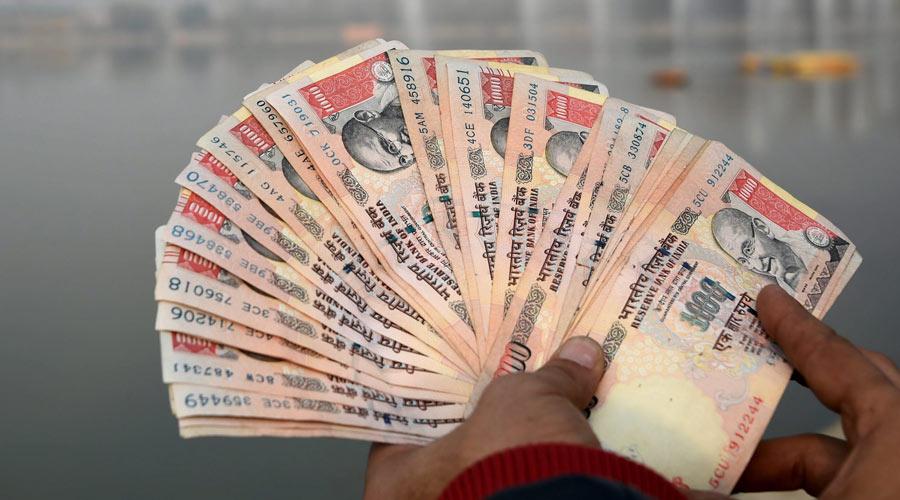The Supreme Court on Wednesday deferred to November 24 the hearing on a batch of pleas challenging the Centre's 2016 decision to demonetise currency notes of denomination of Rs 500 and Rs 1000, reports PTI.
A five-judge constitution bench headed by Justice S A Nazeer adjourned the matter after Attorney General R Venkataramani sought time to file a comprehensive affidavit in the matter.
Venkataramani apologised to the bench also comprising Justices B R Gavai, A S Bopanna, V Ramasubramanian, and B V Nagarathna, for not being able to prepare the comprehensive affidavit and sought a week's time.
Senior advocate Shyam Divan, representing petitioner Vivek Narayan Sharma, said this is highly unusual to ask a Constitution Bench for adjournment.
Senior advocate P Chidambaram, appearing for one of the parties, said this is an embarrassing situation.
Justice Nagarathna observed that normally the Constitution Bench does not rise like this and this is very embarrassing.
The top court granted one week time to the Centre to file an affidavit.
The bench was hearing a batch of 58 petitions challenging the Centre's November 8, 2016 decision to demonetise the currency notes.
'Not a waste of time'
On October 12, the Supreme Court had directed the Centre and the RBI to file comprehensive affidavits to justify the demonetisation decision of 2016, rejecting the government’s contention that the issue was now merely “academic” and any hearing would be a “waste of the court’s time”.
The apex court asked the Centre to place before it the communication issued to the RBI on November 7, 2016, recommending demonetisation.
The bench of Justices S.A. Nazeer, B.R. Gavai, A.S. Bopanna, V. Ramasubramanian and B.V. Nagarathna posted the matter for further hearing to November 9, by when the government and the RBI are expected to file their affidavits.
'We want to see affidavits'
“We want to see them. You cannot keep them away from us. Also file a comprehensive affidavit,” Justice Nazeer, heading the bench, told attorney-general R. Venkatramani.
The bench brushed aside the suggestion by solicitor-general Tushar Mehta that the court need not deliberate on the academic issue and the precious time of the constitution bench need not be wasted.
“In order to answer the issues, we will hear and give an answer whether it is academic or beyond the scope of judicial review. The point in the case that we need to examine is the government policy and its wisdom, which is one aspect of the matter. We also know where the Lakshman Rekha is, but the manner over which it (demonetisation) was done has to be examined,” Justice Nazeer observed.
Demonetisation validity questioned
On December 16, 2016, a bench headed by then Chief Justice TS Thakur referred the question of the validity of the decision and other questions to a larger bench of five judges for authoritative pronouncement.
It had framed various questions in the reference order to be adjudicated by the five-judge bench which includes whether the notification dated November 8, 2016, is ultra vires provisions of the Reserve Bank of India Act, 1934 and does the notification contravene the provisions of Article 300 (A) of the Constitution.
The three-judge bench had then said that assuming that the 2016 notification has been validly issued under the Reserve Bank of India Act, 1934 whether it is ultra vires Articles 14 and 19 of the Constitution.
SC raises questions
"Whether the limit on withdrawal of cash from the funds deposited in bank accounts has no basis in law and violates Articles 14,19 and 21", the bench had said.
It had said whether the implementation of the impugned notification(s) suffers from procedural and/or substantive unreasonableness and thereby violates Articles 14 and 19 and, if so, to what effect.
The top court had framed various other questions and said that keeping in view the "general public importance" and the "far-reaching implications" which the answers to the questions may have, "we consider it proper to direct that the matters be placed before the larger bench of five judges for an authoritative pronouncement".
With bureau inputs











